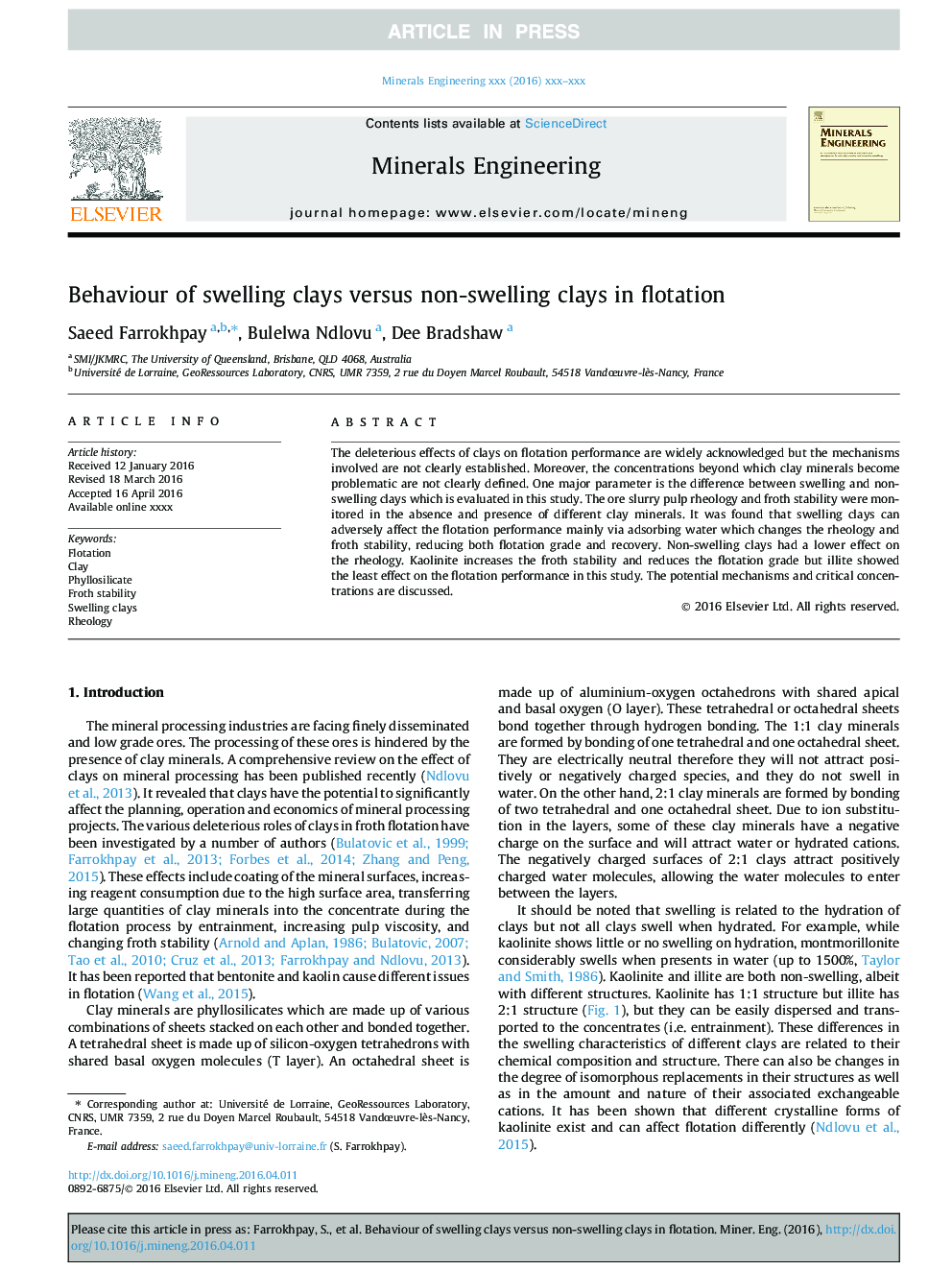| Article ID | Journal | Published Year | Pages | File Type |
|---|---|---|---|---|
| 4910330 | Minerals Engineering | 2016 | 8 Pages |
Abstract
The deleterious effects of clays on flotation performance are widely acknowledged but the mechanisms involved are not clearly established. Moreover, the concentrations beyond which clay minerals become problematic are not clearly defined. One major parameter is the difference between swelling and non-swelling clays which is evaluated in this study. The ore slurry pulp rheology and froth stability were monitored in the absence and presence of different clay minerals. It was found that swelling clays can adversely affect the flotation performance mainly via adsorbing water which changes the rheology and froth stability, reducing both flotation grade and recovery. Non-swelling clays had a lower effect on the rheology. Kaolinite increases the froth stability and reduces the flotation grade but illite showed the least effect on the flotation performance in this study. The potential mechanisms and critical concentrations are discussed.
Related Topics
Physical Sciences and Engineering
Chemical Engineering
Chemical Engineering (General)
Authors
Saeed Farrokhpay, Bulelwa Ndlovu, Dee Bradshaw,
